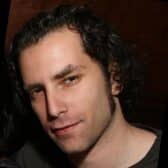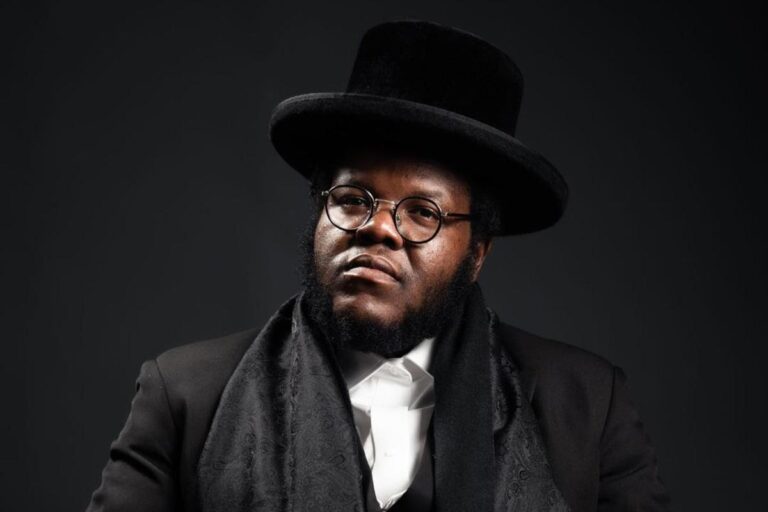
Editor’s note: This article is part of our three-part series on Jewish rappers. Check out our profiles on Kosha Dillz and Moshe Reuven.
On Oct. 7, Hasidic rapper Nissim Black was in his synagogue when he heard sirens. He soon learned more and more information.
“My heart dropped when I heard what was happening,” Black told Unpacked. “There were a lot of emotions going on. As time progressed, it was crazy to learn the extent of how far the Hamas infiltration went. I never thought that could happen.”
He said he was disheartened by reports that young Americans, including Gen Z, have significantly less favorable opinions of Israel compared to older Americans.
“On TV and social media, many supposed experts say Israel is committing a genocide. People who have grown up on social media might believe that,” Black said.
“Look at the way YouTube and TikTok feed you things to shake your way of thinking. Unfortunately, it can be hard for [people] to see the world differently, and you don’t know where people are getting their facts from,” he added.
“Scream”: Bringing light to a dark place
Black’s recent music video, “Scream,” seems apt for this moment. He wrote it while in lockdown during the pandemic when he felt like he wanted to scream.
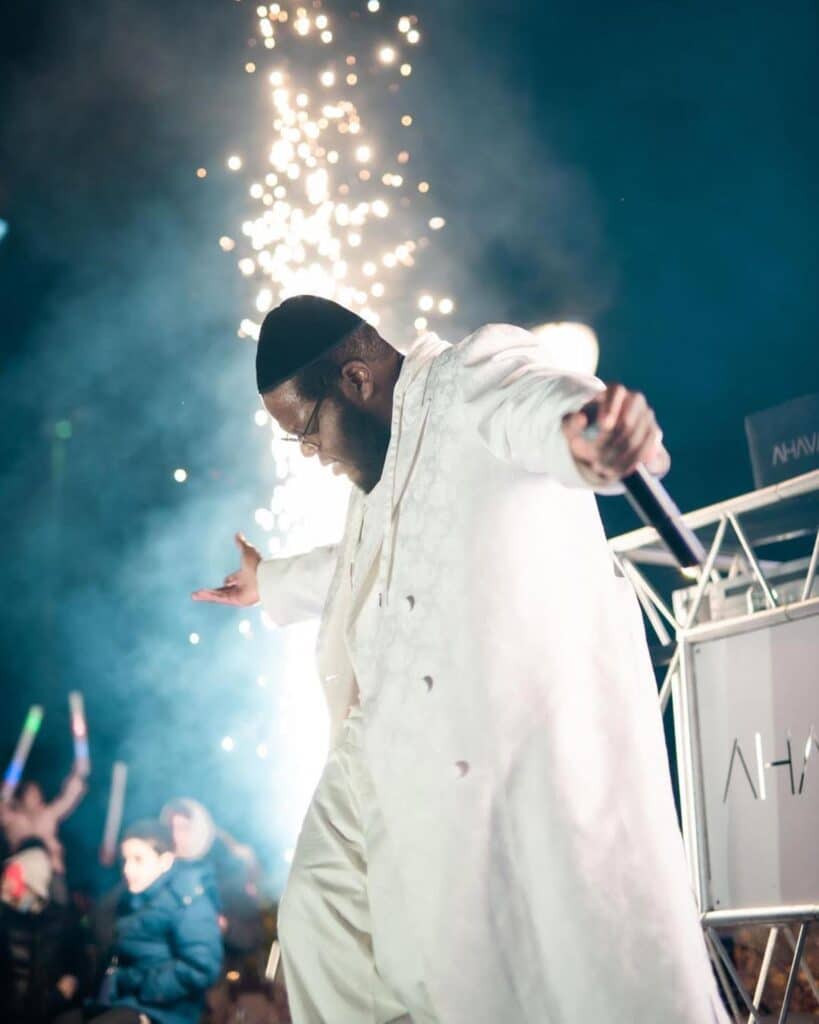
“During Covid, the lockdowns were very intense. I felt like I had to scream. My only escape was that I would go inside my room and turn on videos of Norway’s beautiful landscape. I’d quietly mediate and turn on music. The images were stunning.”
Black promised himself that one day he would shoot a video in Norway. “I felt like it was the best place to do it. I climbed a mountain at one in the morning, and it was all light out,” he said, noting that parts of Norway can have more than 70 days of consecutive light.
“The theme of ‘Scream’ is yelling out to Hashem and wanting to bring the light to help people who feel they’re in a dark place and struggling to get out of it,” he explained.
His upcoming album, “Glory,” touches on similar themes, emphasizing positivity, strength and not letting any obstacle get in the way of one’s future.
Black’s journey to Judaism and Israel
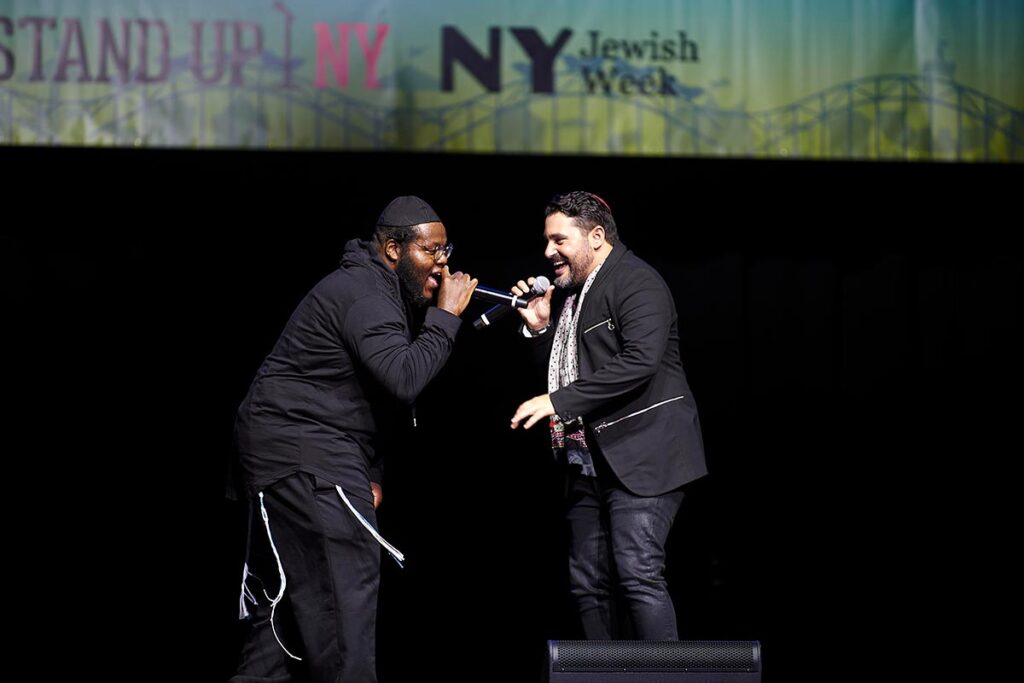
Black was born as Damian Jamohl Black and both his parents were rappers. Black was raised Muslim but converted to Christianity when he was 14, a decision he made after he stopped selling drugs.
During a challenging period, a friend of his attempted to commit a violent act, and that person wrongly believed Black had ordered him to do so. He said he has lost friends to gun violence and was happy he was able to explain he did not ask his friend to commit violence.
Black said it was extremely painful when his mother died from an overdose of oxycontin when he was 19. “She was my heart,” he said. “It was a terrible shock to me.”
He initially released several albums under the name D. Black. He converted to Judaism over a decade ago as he felt a spiritual pull and connected with Jewish texts he studied. He said all he knew was he wanted to serve Hashem and didn’t want to let anything stop him.
Black shared about the challenges he has faced on his journey. “No matter where I go, I don’t look like anyone around me. If I’m in the neighborhoods where I grew up in, I don’t have the dress code. If I’m in a Jewish neighborhood, I still have my skin color. I’m strong but I have had to endure challenges and hateful comments. But if everything in your life is peaches and cream, you don’t grow as much. You know, ‘no pain, no gain.’”
In his journey as a covert to Judaism and as a Black man, he has generally been welcomed within the Jewish community, though there have been annoying questions and a few instances of racism.
“The bulk of what I have been experiencing has been overwhelming love from the people,” Black said. “My fan base has gotten bigger, and people mostly show a lot of support, which is wonderful to see.”
He said it is possible he could be more successful as an artist living in the United States, but he decided it was important to live in Israel. He now resides in Beit Shemesh, Israel, with his wife and seven children.
“If a person wants to be the absolute greatest in entertainment, they drop everything and they move to LA,” Black said. “If they want to be the best in fashion, they move to New York or Paris.”
“If the person wants to be the best in spirituality, Eretz Yisrael (the land of Israel) is the best place to be and that is what was most important to me,” Black explained. He often shares deep insights on his Instagram:
Reflecting on fellow rapper Kanye West
In November 2022, Black appeared on an ABC program and shared his reaction to Kanye West’s antisemitic remarks. Black told ABC he felt let down.
What would Black say to him if by some chance they found themselves in a room?
“That’s an interesting question,” Black said. “First off, I would tell him that I understand he may have been hurt by some individuals from the Jewish community. I don’t apologize for other people, though I can say sorry those things happened.”
But he added, “You can’t judge a people based on bad actions of individuals.” Black noted that artists, especially those with many fans, have “a great responsibility” with their words.
He emphasized that it is harmful for people of influence to spread hateful messages because fans may think it is acceptable.
“Don’t shy away from Judaism”
Black said he is troubled by a rise in antisemitism, and he is aware of college students who are fearful of showing that they are Jewish or discussing Israel. His advice is to show pride.
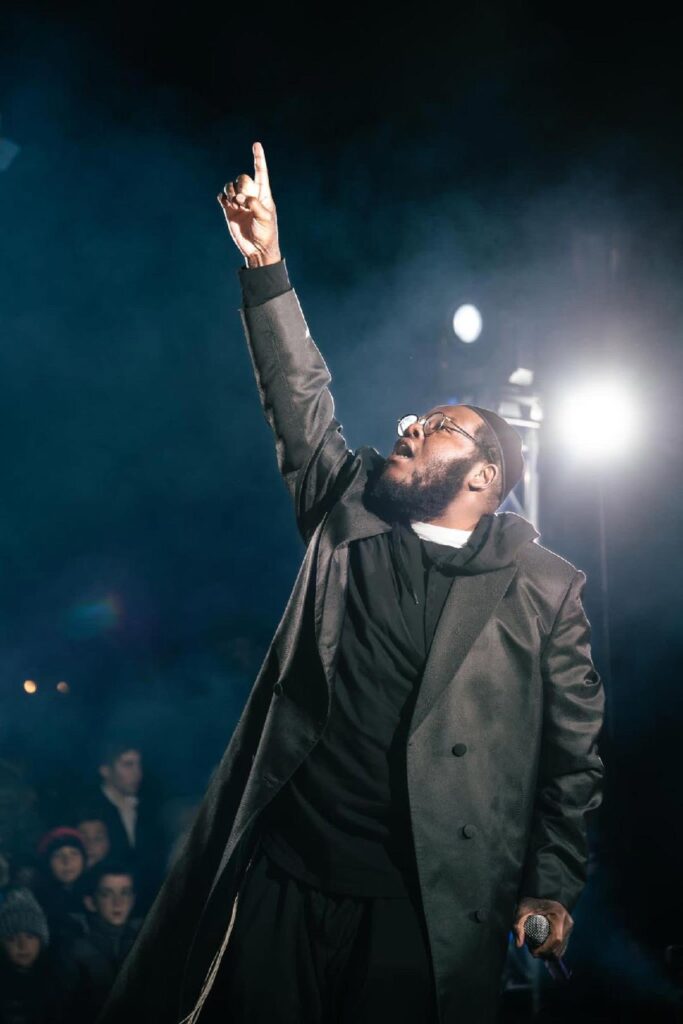
“The greatest thing we can do is not shy away from our Judaism or run from it,” he said. “People respect those who respect themselves and see people who are comfortable in their own skin.”
“I remember for years, Jay-Z was calling himself the king and he became the king. So, you have to conduct yourself like a boss if you want to be a boss,” he added.
Asked whether he thinks it is his role to fight against antisemitism or racism, he said indirectly, he does so. He also said he wants to see more authentic representation of people of all religions but especially Orthodox Jews, in TV and films.
“I’m a proud, happy Orthodox Jew, but at one point I was a Muslim, and at one point I was a Christian,” he said. “People who never any of those things talk about what these people are, or what they were, and they’ve never been one or have never been a part of it.”
“When they’re depicting Jewish identity a certain way, I think it is a very big problem and it needs to change,” he said.
Black said he is not at liberty to discuss details of his deal with HBO (now called Max) for a show he is slated to star in with a script by Jewish comedian Moshe Kasher and directed by Salli Richardson-Whitfield.
What became his biggest hit
In February 2020, Black released one of the most unique Jewish music videos of all time as it unapologetically affirmed his pride in being Black and Jewish.
Taking a page from the film “Coming To America” with Eddie Murphy and Arsenio Hall, “Mothaland Bounce” resonated with many people and garnered 5.2 million hits.
In one of Black’s best lyrics, he raps: “Ain’t no monkey business, cause ain’t no monkeys in here/I know what you been thinking/the Black Abe Lincoln/Just wanted you to be aware/signing off, it’s Mr. Black, Hitler’s worst nightmare.”
Black said he worked hard on the video and believes the message was powerful. He said the video also became popular after the death of George Floyd, which was three months after the video’s release.
Black’s thoughts on success and advice for Gen Z
Black’s most well-known collaboration is “Hashem Melech” which featured him with singer Gad Elbaz and got more than 8 million views. The two performed the song in 2022 at The Chosen Comedy Festival in Brooklyn.
Now that Black has reached a high level, is it easier or harder? “It depends if you’re hungry to always be better, and I am,” he said.
“It’s harder to one-up yourself. Some things get easier — shows get easier, knowing how to navigate gets easier. But the challenge of being creative is always there. You always want to make a better song and a better video, so in that sense, it gets harder over time.”
What’s his message to young fans who want to become music stars? “God loves you and you can,” he said. “You can fill in the blank for what you can do. You can grow. You can achieve. You can inspire and reflect God’s light in this world.”
